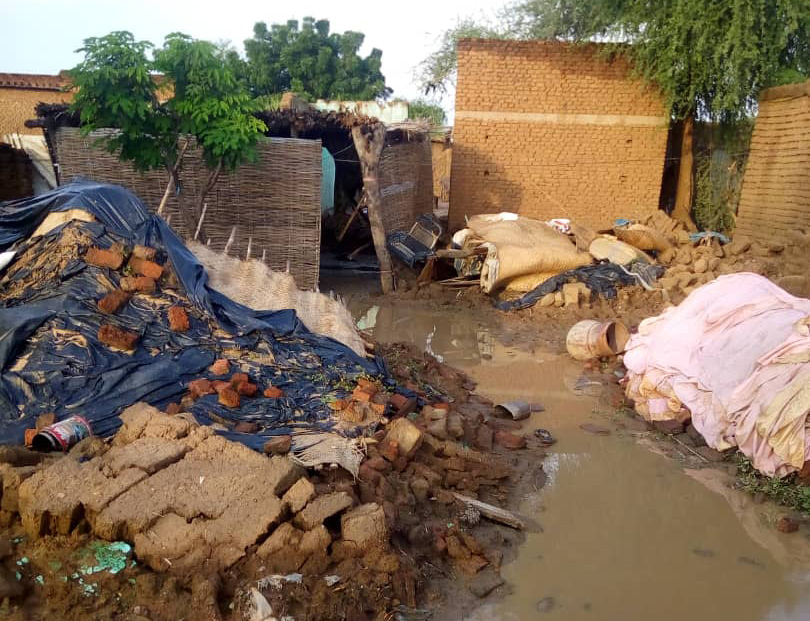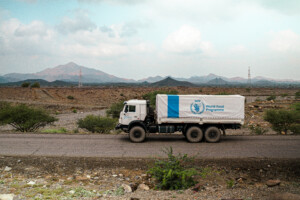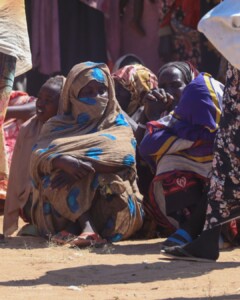Dengue fever threatens Khartoum Bahri

Sudan’s annual rainy season routinely leaves swaths of flood damage. The resulting standing water is a breeding ground for mosquitoes that carry dengue fever and malaria (File photo: RD)
In an interview with Radio Dabanga yesterday, Rayan Salaheldin denounced the security situation and lack of medicine in Khartoum Bahri (Khartoum North), where there are over 300 suspected cases of dengue fever. “The humanitarian conditions in the city are constantly deteriorating and there are no signs of the current crisis abating,” a doctor from the Khartoum Bahri Emergency Room told Radio Dabanga yesterday.
“Every day that passes the medicine, food, and water supply situation gets worse. People are forced to drink polluted well water that contains an exceedingly high percentage of salt,” said the medic.
“Rubbish and corpses are piled up in the streets, and flies and mosquitoes proliferate,” he said, warning that the health situation is about to worsen due to the emergence of vector-borne diseases. Vector-borne diseases are illnesses caused by parasites, viruses, and bacteria transmitted by ‘vectors’, such as mosquitos or ticks. These diseases include malaria, dengue fever, yellow fever, zika, chikungunya, and Rift Valley fever.
In Khartoum Bahri neighbourhoods, 200 cases of dengue fever have been recorded in El Sha’abiya, 20 cases in El Majad, 50 cases in El Safia, 2 cases in El Dongola, 12 cases in Hamid, and 100 cases in Shambat, according to the doctor.
Salaheldin stressed that they are currently trying to provide more life-saving medicine to the injured despite the difficult conditions in Bahri, but they have so far failed.
“Paracetamol is the only treatment available to those suspected of being infected with the disease, which only helps to bring down their fever.” Doctors also advise the patient to drink plenty of fluids and avoid fasting.
Doctors are also expected to review the patient’s blood platelets, as the virus causes them to break down, causing symptoms of dizziness and lethargy. Dengue fever, also called dengue haemorrhagic fever, can manifest as severe acute viral infections, usually with a sudden onset of fever, malaise, headache, and myalgia followed by pharyngitis, vomiting, diarrhoea, skin rash, and haemorrhagic manifestations. The outcome is fatal in more than 50 per cent of the cases, the World Health Organisation reports.
Salaheldin explained that there is currently much stagnant water in the capital city of Sudan. Cases of dengue fever and malaria usually increase in Sudan after floods, which allow diseases transmitted by mosquitoes to spread faster as post-flood conditions are ideal for these animals who lay their eggs on the surface of stagnant waters. These conditions are worsening as climate change is causing the weather to become more extreme in Sudan.
He appealed to Bahri residents to prevent the disease from spreading by burying pools of stagnant water. She also appealed to the authorities to provide medicine and aid to the Bahri Emergency Room to confront the spread of the disease.
The doctor from the Khartoum Bahri Emergency Room said the people’s immunity is very weak as there are only legumes available to eat. “Even the mildest diseases are causing our patients’ conditions to worsen,” he said, stressing that the failure to confront the epidemic decisively and seriously will lead to a major health disaster.
The doctor appealed to the warring forces, state and local organisations, and state institutions to intervene urgently and deal with the situation.
On March 14, Sudan’s Federal Emergency Operations Centre reported new cases of cholera and dengue fever in a number of states in the country. More than 10,700 suspected cholera cases were documented in February.











 and then
and then